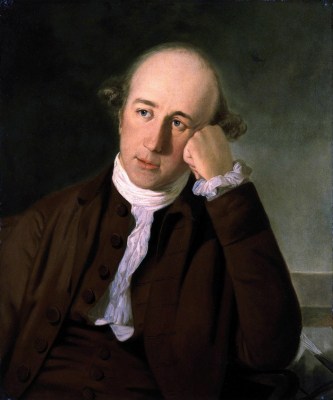By Arul Louis
New York, Feb 10 : Warren Hastings, the 18th Century British Governor-General of Bengal, made an appearance in the Senate trial when the prosecutors cited his impeachment by the British House of Commons after he had left office as a precedent for trying Donald Trump who is no longer the President.
During the arguments on Tuesday on the constitutionality of holding the impeachment trial of Trump when he has already left office, Jamie Raskin, a Democratic member of the House of Representatives who is the lead prosecutor, gave the precedent of the impeachment trial of Hastings that began 233 years ago this month, nearly four years after his governor-generalship ended and he returned to England.
Raskin suggested that the Hastings impeachment in 1787 was a model for framers of the US Constitution who drafted it the same year.
He said, said that there were several impeachments of people who had left office during the lifetime of the drafters of the Constitution and “indeed, the most famous of these impeachments occurred while the framers gathered in Philadelphia to write the Constitution. It was the impeachment of Warren Hastings, the former governor-general of the British colony of Bengal.”
Another prosecutor, Democratic Joe Neguse, also mentioned the impeachment of Hastings.
Trump’s lead lawyer Bruce Castor countered that it had no relevance to the US: “We left the British system.”
If the history of Britain is to be used, he said, “then the question is, (should) we have a parliament and we have a king?”
He asked, “Is that what we are headed for?”
The framers of the Constitution rejected the British model that allowed for the impeachment of anyone except the king and narrowed it to only those holding office, another defence lawyer, David Schoen said.
Hastings was ultimately acquitted by the House of Lords in 1795, eight years after he was impeached.
He had been charged with corruption, misuse of authority and mistreatment and improper execution of Indians.
At the start of the trial, the Senate had to resolve the question of whether Trump can be impeached after he has left office.
While the Republicans focused narrowly on the penalty for those found guilty to “be removed from office,” which is not possible since Trump is no longer president, the Democrats pointed out that the Constitution also provides the penalty of “disqualification to hold and enjoy office” which can be handed to someone already out of office.
Ultimately, the Senate voted 56-44 that under the Constitution it had the power to try Trump even after he left office.
(Arul Louis can be reached at arul.l@ians.in and followed on Twitter at @arulouis)
Disclaimer: This story is auto-generated from IANS service.

